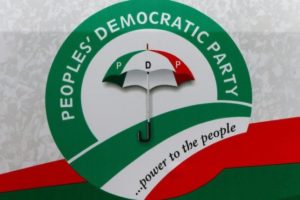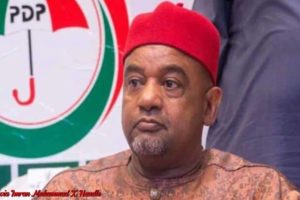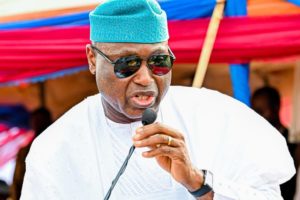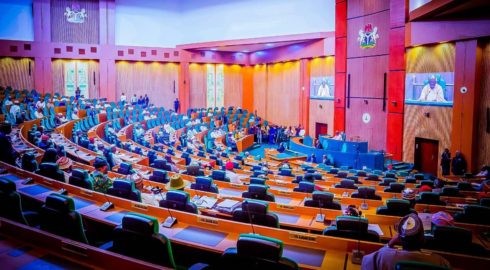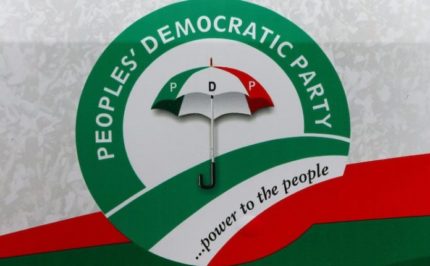The House of Representatives Committee on Renewable Energy has announced a comprehensive investigation into the utilization of $2 billion in renewable energy grants received by Nigeria from 2015 to 2024. These funds, aimed at accelerating Nigeria’s shift toward sustainable energy, were provided by international donors, including the European Union and other key partners. The committee seeks to evaluate the effectiveness and impact of these investments on Nigeria’s renewable energy landscape.
Rep. Victor Afam, the committee’s chairman, disclosed that the investigation will involve a thorough review of spending practices, with a focus on accountability and transparency. This probe will examine whether the grants have been effectively channeled to achieve the intended benefits, especially in rural electrification, renewable energy technology adoption, and carbon emission reduction.
House of Representatives: Public Hearing Scheduled to Assess Renewable Energy Impact
The committee has scheduled a two-day public hearing on November 5 and 6, inviting stakeholders from both the public and private sectors to discuss the grants’ impact on Nigeria’s energy sector. According to Rep. Afam, the hearing will serve as a platform for the public, industry experts, and government agencies to evaluate the effectiveness of the renewable energy projects funded by the grants. The objective is to identify areas of success and areas that require improvement.
This public hearing is anticipated to shed light on the challenges faced in implementing renewable energy projects in Nigeria and to recommend strategic adjustments. Experts in energy policy, government officials, and representatives of donor organizations are expected to present their insights, which will guide the committee in making informed recommendations to enhance future energy initiatives.
House of Representatives: MDAs Under Scrutiny for Transparency in Grant Management
One major focus of the investigation will be on Ministries, Departments, and Agencies (MDAs) involved in renewable energy investments, procurement, and grant management. The committee plans to examine the roles of these MDAs to determine if they have adhered to transparent processes and utilized the funds effectively. Rep. Victor Afam emphasized the need for accountability, stating that MDAs must demonstrate that they have been good stewards of the funds entrusted to them.
The investigation will scrutinize specific projects undertaken by these MDAs to verify if they have made tangible contributions to Nigeria’s renewable energy goals. This includes reviewing procurement processes, financial records, and project outcomes to ensure that the allocated funds were used as intended and delivered measurable results in expanding Nigeria’s renewable energy infrastructure.
Rep. Victor Afam Commends Donor Cooperation and Support
Rep. Victor Afam expressed deep appreciation for the cooperation and support provided by the European Union and other international donors in driving Nigeria’s renewable energy transition. He noted that these partnerships have been instrumental in advancing Nigeria’s energy goals and that the investigation is part of a mutual commitment to transparency. The grants from donors are seen as a critical resource for the country, enabling Nigeria to pursue ambitious goals for sustainable development.
Victor Afam acknowledged the trust placed in Nigeria by its international partners and assured them that the probe is a constructive effort to improve grant management. By assessing past performance, Nigeria aims to build stronger partnerships and optimize the use of future renewable energy funds for greater impact across communities.
House of Representatives Committee Aims to Uncover Challenges in Renewable Energy Sector
Through this investigation, the House Committee seeks to uncover underlying challenges that may have hindered the full realization of renewable energy projects in Nigeria. This includes addressing bureaucratic bottlenecks, resource misallocation, and potential issues in project execution that may have delayed or compromised results. The findings are expected to inform a framework to tackle these obstacles and optimize the performance of future renewable energy initiatives.
House of Representatives committee believes that identifying these barriers is crucial for scaling up renewable energy solutions in Nigeria, where energy demand continues to rise. By resolving these challenges, Nigeria can better harness renewable energy sources like solar, wind, and hydro to improve electricity access and reduce its carbon footprint, moving closer to national and global climate targets.
House of Representatives: Investigation Outcomes to Shape Future Renewable Energy Policies
The outcomes of this investigation will play a significant role in shaping Nigeria’s renewable energy policies and strategies moving forward. Based on the findings, the committee is likely to propose reforms that could include stricter grant oversight, improved project monitoring, and enhanced accountability for MDAs managing renewable energy investments. These recommendations aim to maximize the impact of renewable energy funds and ensure that future investments align closely with Nigeria’s sustainable energy goals.
As Nigeria pushes toward increased renewable energy adoption, the insights gained from this probe are expected to help refine the country’s approach to renewable energy funding and implementation. By strengthening governance and transparency in the sector, Nigeria hopes to attract more international investment and partnerships that can support the country’s journey to a more sustainable and resilient energy future.
Table of Contents
Discover more from OGM News NG
Subscribe to get the latest posts sent to your email.





